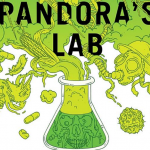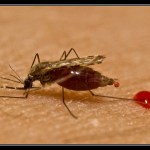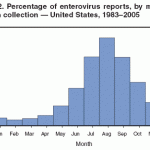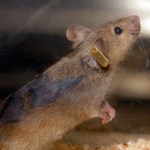disease
What, with all the attacks on science and scientist these days, we may not want to be focusing on those times when science goes off the rails and makes a huge mess of things. But, science at its best and scientists at their best, will never shy away from such things.
Dr. Paul Offit just wrote a book called Pandora's Lab: Seven Stories of Science Gone Wrong, which not about an evil black dog that escaped from a box, but rather, seven instances when the march of scientific progress headed off a cliff rather than in the desired direction. People died. Many people died. Other bad things…
A new article published in Physiological Reviews compared some remarkable similarities and differences between naked mole rats and humans. Both are relatively long-lived, highly social and have low natural selection pressures. But, this is about all they have in common. While humans are prone to developing age-related cancer, diabetes, heart disease and dementias, naked mole rats are rather resistant to these diseases. Instead, naked mole rats appear to maintain a youthful state throughout their long lives of 30+ years, compared to a mere 3 years for a mouse. To top it off, they do not…
Left to right, Granny Beck, my Grandma June, and Great-Great Grandma Bertha, circa 1961. Who knows what was on the menu that day.
My Great-Grandpa and Granny Beck were, in some ways, ahead of their time. My Grandpa’s mom and step-dad, they both went through scandalous divorces and then switched partners with another couple, Granny Orpha marrying Wade and my Grandpa’s dad Lee marrying Wade’s ex-wife, Edna. Orpha and Wade raised 5 of Orpha’s boys together, and had a daughter after the divorce/remarriage.
By the time I was born, my Granny Beck was in her 80s, and I have only vague…
Image of mosquito from http://bloodinurineandpainofca.wordpress.com/
Until now I thought I had come up with enough reasons to dislike mosquitoes, those tiny little blood sucking vectors of disease. With reports of the debilitating mosquito-borne virus chikungunya in the Americas (Carribean), I was ecstatic hear that researchers are working hard to find ways to control mosquito populations. As mentioned in a previous blog, only the females bite to obtain nourishment for developing eggs. According to the study authors, the female mosquito can double her own body weight after just one meal,…
This is the time of year parents start scanning their facebook feeds and other sources of information for what to expect our children to get sick with, how badly, and when. For a couple of years in a row, a few years ago, we were getting hit with a norovirus, causing diarrhea, vomiting, and a lot of lost daycare or school days. This year we are seeing reports of an outbreak of the scary-sounding "Enterovirus EV-D68." Hundreds of kids are sick enough to get treatment in several states, currently Colorado, Iowa, Missouri, Kansas, Oklahoma, Illinois, Ohio, North Carolina, Georgia and Kentucky…
Image of seals from www.fanpop.com/clubs/the-animal-kingdom/images/14060694/title/seal-wall…
Paleogeneticist Dr. Johannes Krause (University of Tübingen, Germany) and colleagues were interested in the origin of tuberculosis (TB) in the Americas. Since strains of TB found in the Americas are related to strains found in Europe, prior theories held that Spaniards may have introduced it to the Americas while colonizing South America. The problem with those theories is that pre-Columbian skeletal remains showed signs of TB much earlier.
Dr. Krause was quoted in Scientific American, “…
Do environmental factors such as toxins contribute to autism? On Respectful Insolence, Orac looks at a new study which found a correlation between birth defects and the eventual development of autism. Orac says this correlation has already been demonstrated, along with "autism and exposure to teratogens, specifically at least maternal rubella infection, thalidomide, valproic acid, and misoprostol." But could other chemicals be influencing higher rates of birth defects and autism in certain areas? Many people believe that autism-inducing toxins are found in vaccines. But autism's correlation…
Global warming, shifting ecozones and changing the climatology of large reasons, is expected to, and has already shown the ability to, affect distribution and incidence of various diseases. The brain-eating Ameba comes to mind. As it were. There is some new research by Michael Grigg of the NIH that addresses a different change.
Along with melting Arctic ice comes an erosion of natural barriers that once separated parasites from hosts.
That erosion has allowed at least two pathogens to infect marine mammals they were previously unknown in...
A newly identified parasite was once frozen safely…
Image of common model organisms from European Molecular Biology Laboratory (EMBL).
A recent article posted in the BBC News provided a good explanation of why scientists commonly study these organisms as models for human diseases and conditions. Model organisms are chosen because their physiology is similar to other animals, including humans, in addition to other reasons:
Visit the BBC News to see why researchers most often use flies, fish, mice and worms to understand the mechanisms of disease and health.
Did you know that ~70% of the genes in a…
I've had a rule of thumb for a while that helps me identify quacks with a high degree of accuracy. It's not very sensitive, as a lot of quacks don't exhibit this trait, but it's very specific. A lot of quacks don't use the term; so not hearing says nothing about a practitioner. If you hear someone using this term, however, it's at least 99% likely that he is a quack. At least.
I'm referring to the word "dis-ease."
You see it everywhere. Instead of using the word "disease," quacks will often use the word "dis-ease" instead. Basically, the idea (apparently) is to choose not to empower health…
This post is part of The Pump Handle's Public Health Classics series.
By Sara Gorman
Does cigarette smoking cause cancer? Does eating specific foods or working in certain locations cause diseases? Although we have determined beyond doubt that cigarette smoking causes cancer, questions of disease causality still challenge us because it is never a simple matter to distinguish mere association between two factors from an actual causal relationship between them. In an address to the Royal Society of Medicine in 1965, Sir Austin Bradford Hill attempted to codify the criteria for determining…
I was delighted to turn on my radio this morning and hear the interview with Dr. Barbara Natterson-Horowitz (UCLA) and journalist Kathryn Bowers about their book called "Zoobiquity: What animals can teach us about health and the science of healing" on the Diane Rehm show (NPR). This book describes many diseases that are shared between humans and certain animals. More information on shared diseases can be found on the website for the book.
You can listen to the interview here: http://thedianerehmshow.org/audio-player?nid=16187
Props to you Diane Rehm for…
I rarely write about climate change. As much as it's been hashed out amongst climate scientists, and even many of the former "climate skeptics" have now changed their tune, I readily accept that climate change is happening, and is happening largely due to human activities. More importantly for my field, climate change is also having effects on human health in a number of different ways, from the movement of insect vectors into new areas, to warming of the seas leading to more extreme weather conditions, to the loss of coral reefs and the freshwater that these reefs protect from the…
Before Zombie Day comes to a close, I want to do a little braaaaaaaaaaain dump on where zombies actually fit into the scientific landscape (and to thank Joseph Hewitt for the amazing art he provided for all of us. As a huge Evil Dead fan, I especially appreciate my copy of the Necronomicon. Groovy.)
My colleague Lee Billings, with whom I have killed literally tens of thousands of zombies, and I started the day with a discussion of the connection between zombies and science, which took us to the roots of modern-day zombie-dom. It seems pretty clear that word and the basic concept comes from…
Mark Pendergrast writes: To kick off this book club discussion of Inside the Outbreaks, I thought I would explain briefly how I came to write the book and then suggest some possible topics for discussion.
The origin of the book goes back to an email I got in 2004 from my old high school and college friend, Andy Vernon, who wrote that I should consider writing the history of the EIS. I emailed back to say that I was honored, but what was the EIS? I had never heard of it. I knew Andy worked on tuberculosis at the CDC, but I didn't know that he had been a state-based EIS officer from 1978…
tags: Sex, Drugs and HIV -- Let's Get Rational, behavior, disease, prostitution, gay men, drug addicts, sex, STD, HIV, AIDS, poverty, medicine, public health, Compassion Conundrum, Elizabeth Pisani, TEDTalks, streaming video
Armed with bracing logic, wit and her "public-health nerd" glasses, Elizabeth Pisani reveals the myriad of inconsistencies in today's political systems that prevent our dollars from effectively fighting the spread of HIV. Her research with at-risk populations -- from junkies in prison to sex workers on the street in Cambodia -- demonstrates the sometimes counter-intuitive…
On Aetiology, Tara C. Smith shares some intriguing student work on the role infections play "in cancer, autoimmune disease, mental illness, and other chronic conditions." First, Ahn To investigates the causes of nasopharyngeal carcinoma. Smoking is not a prerequisite for this type of cancer, but risk factors include infection with Epstein-Barr virus and "consumption of 'salted fish.'" Ron Bedford explores Post Polio Syndrome, which occurs among polio survivors who experience "significant deterioration of their neuromuscular functioning" after a long period of stability. Although "the…
Interesting review paper on disease and Sub-Saharan African, Neglected Tropical Diseases in Sub-Saharan Africa: Review of Their Prevalence, Distribution, and Disease Burden:
The neglected tropical diseases (NTDs) are the most common conditions affecting the poorest 500 million people living in sub-Saharan Africa (SSA), and together produce a burden of disease that may be equivalent to up to one-half of SSA's malaria disease burden and more than double that caused by tuberculosis. Approximately 85% of the NTD disease burden results from helminth infections. Hookworm infection occurs in almost…
Recently I listened to the author of Addiction: A Disorder of Choice, Gene M. Heyman, interviewed on the Tom Ashbrook show. A lot of the discussion revolved around the term "disease", which I can't really comment on, but a great deal of Heyman's thesis is grounded in rather conventional behavior genetic insights. In short, a behavioral trait can have a host of inputs, and is often a combination of environment & genes developing over a lifetime. Alcoholism is not much of an issue among observant Mormons because of their environment, not their genes. Heyman points out that whereas some…
tags: disease, god, religion, creationism, humor, funny, satire, Edward Current, streaming video
In a live webcast, Edward Current explains how God created a perfect world and had nothing to do with creating disease. But letting just anyone write in and comment probably wasn't the best idea [3:51]








